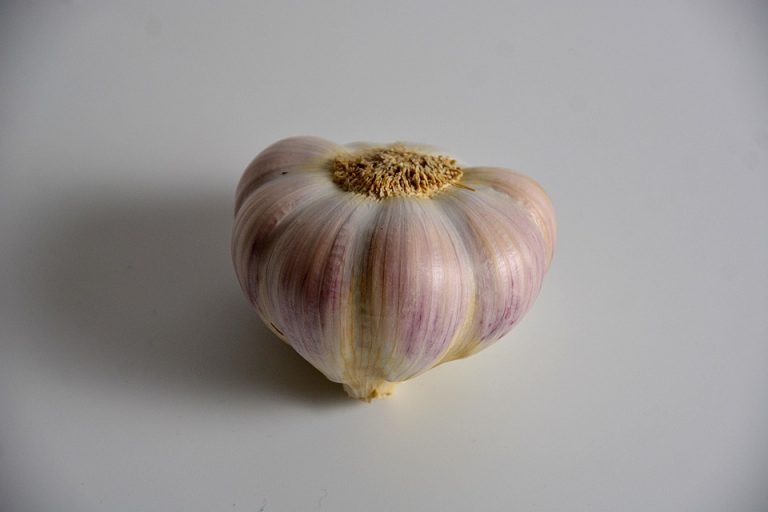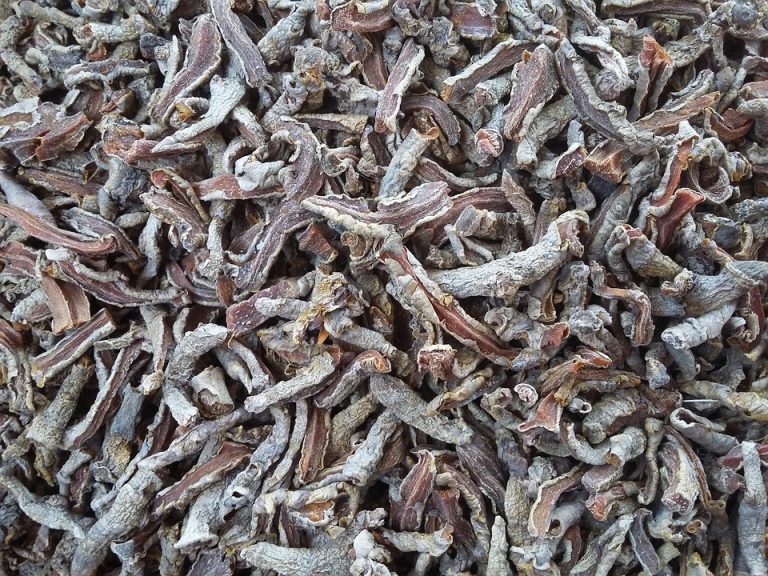Seeds good for bones are tiny powerhouses you can sprinkle, stir, or blend into your life to protect your strength. They deliver minerals, healthy fats, and plant compounds that help build bone, lower inflammation, and support the hormone and immune balance your skeleton relies on.
Think of them as low-cost, high-impact insurance for your joints, hips, and spine. If you love movement, want to age strongly, or simply want fewer aches, this matters to you. I’ll walk you through seven seeds that truly help, how they work, how to use them deliciously, and what science and experts say so you can make confident choices.
Contents
- Seeds Good For Bones: 7 To Try
- Why Seeds Good For Bones Work
- 1. Chia Seeds — Tiny Omega-3 Carriers
- 2. Flaxseeds — Lignans And Hormonal Balance
- 3. Sesame Seeds — Calcium Powerhouses
- 4. Pumpkin Seeds — Magnesium And Zinc Stars
- 5. Hemp Seeds — Complete Protein And Minerals
- 6. Sunflower Seeds — Vitamin E And Supportive Minerals
- 7. Poppy Seeds — Calcium-Rich Tiny Gems
- How To Add Seeds Good For Bones To Your Diet
- Cooking And Storage Tips To Preserve Nutrients
- Recipes And Simple Combos With Seeds Good For Bones
- Who Benefits Most And When To Be Cautious
- Bottom Line
- FAQ
Seeds Good For Bones: 7 To Try
Seeds aren’t a miracle, but they are a steady, everyday habit that compounds. These seeds good for bones bring calcium, magnesium, phosphorus, zinc, vitamin K, and healthy fats—all players in bone formation and maintenance. Research from nutrition departments and osteopathy journals shows diets rich in these nutrients help preserve bone density and reduce fracture risk, particularly when paired with strength work and vitamin D.
Below I’ll give you the seven best seeds, why they matter, practical tips, and simple recipes you can use tomorrow.
Why Seeds Good For Bones Work
Seeds concentrate nutrients. A few tablespoons deliver more mineral punch than many vegetables by volume. They also contain bioactive compounds—lignans, phytosterols, and antioxidants—that support bone cells and modulate inflammation. Studies discussed at institutions like the National Institutes of Health show that minerals like magnesium and zinc are critical for bone mineralization, while omega-3 fats can protect against age-related bone loss.
This isn’t theory. Clinical nutrition research connects regular intake of these nutrients with stronger bone markers in postmenopausal women and older adults.
1. Chia Seeds — Tiny Omega-3 Carriers
Chia seeds pack omega-3 ALA, calcium, phosphorus, and magnesium. Two tablespoons give you a solid hit of calcium plus anti-inflammatory fats that help protect bone turnover.
- Why they matter: Omega-3s reduce inflammatory signals that speed bone breakdown.
- How to use: Make chia pudding, stir into yogurt, or mix into oatmeal.
- Quick tip: Soak chia in plant milk for a creamy texture that boosts absorption.
This is an easy swap that helps bone-supporting hormones and keeps you full.
2. Flaxseeds — Lignans And Hormonal Balance
Flaxseed is rich in lignans, fiber, and ALA. Lignans act like gentle hormone modulators and antioxidant defenders—useful as estrogen levels shift with age.
- Why they matter: Lignans may support bone health by influencing estrogen pathways and reducing oxidative stress.
- How to use: Grind flaxseed for full benefits; add to smoothies, baked goods, or cereals.
- Quick tip: Store ground flax in the fridge to prevent rancidity.
Flaxseed brings a nutty, unobtrusive flavor and a bone-friendly nutrient cocktail.
3. Sesame Seeds — Calcium Powerhouses
Sesame seeds are unexpectedly rich in calcium. Tahini, the sesame paste, is an excellent way to add creaminess and bone-building minerals to meals.
- Why they matter: Calcium is the building block of bone; sesame delivers it in a tasty package.
- How to use: Blend tahini into dressings, swirl into hummus, or sprinkle toasted seeds on salads.
- Quick tip: Pair sesame with vitamin D-rich foods for better calcium absorption.
A spoonful of sesame a day goes a long way toward steady, lifelong bone maintenance.
4. Pumpkin Seeds — Magnesium And Zinc Stars
Pumpkin seeds (pepitas) are loaded with magnesium, zinc, and phosphorus—minerals essential for bone mineral density and collagen formation.
- Why they matter: Magnesium helps convert vitamin D into its active form; zinc supports bone remodeling.
- How to use: Toss roasted pepitas over salads, mix into granola, or eat as a salty snack.
- Quick tip: Lightly roast to deepen flavor without losing nutrients.
These seeds are crunchy, satisfying, and particularly helpful if you lift weights or recover from injury.
5. Hemp Seeds — Complete Protein And Minerals
Hemp seeds deliver complete plant protein, magnesium, and phosphorus, plus a pleasing nutty taste.
- Why they matter: Protein is essential for bone matrix and repair; hemp gives quality plant protein without heavy digestion.
- How to use: Sprinkle on smoothies, salads, or use in energy bites.
- Quick tip: Use hemp in baking for extra protein and texture.
For active people and women managing perimenopause, hemp helps keep the bones resilient.
6. Sunflower Seeds — Vitamin E And Supportive Minerals
Sunflower seeds provide vitamin E, magnesium, and copper, which support collagen and protect cells from oxidative damage.
- Why they matter: Antioxidants protect bone cells; copper helps form collagen and connective tissue.
- How to use: Add to trail mix, salads, or homemade granola for a nutritional lift.
- Quick tip: Choose unsalted or lightly salted to manage sodium intake.
A small handful daily adds texture, flavor, and steady nutrient support for your skeleton.
7. Poppy Seeds — Calcium-Rich Tiny Gems
Poppy seeds are small but dense with calcium and phosphorus, and they add a wonderful crunch.
- Why they matter: Their mineral density makes them an excellent topping for yogurts and baked goods.
- How to use: Sprinkle on bagels, in cakes, or stir into dressings.
- Quick tip: Use them sparingly for texture and a mineral bump.
Poppy seeds are a simple, subtle way to layer in calcium.
How To Add Seeds Good For Bones To Your Diet
Start small and build. Toss a tablespoon of mixed seeds into your breakfast and watch the cumulative effect. Focus on variety so you get a broad mineral and phytochemical spectrum.
- Keep a seed jar in the kitchen for quick topping.
- Blend chia or flax into smoothies for texture and lasting fullness.
- Swap nut butters for tahini in dressings and dips.
- Add hemp to savory bowls to up protein without heavy taste.
These are small shifts with surprisingly fast returns—more energy, fewer cravings, and stronger movement.
Cooking And Storage Tips To Preserve Nutrients
Seeds good for bones store best in cool, dark places. Ground flax and hemp are perishable—refrigerate them. Lightly toasting seeds heightens flavor but avoid high heat for long periods to prevent fat oxidation.
- Buy whole seeds when possible; grind what you need.
- Store opened bags in the fridge or freezer for longer life.
- Add seeds after cooking to preserve delicate fats.
Smart storage keeps your seed habit effective, not wasted.
Recipes And Simple Combos With Seeds Good For Bones
Try these quick combos:
- Chia overnight pudding with almond milk, berries, and a spoon of tahini.
- Green smoothie with spinach, banana, ground flax, and hemp seeds.
- Roasted veggies tossed with pumpkin seeds and a lemon-tahini drizzle.
- Yogurt parfait layered with poppy seeds, sunflower seeds, and a drizzle of honey.
These mixes pair taste and texture with bone-supportive nutrients so you’ll actually look forward to them.
Who Benefits Most And When To Be Cautious
Women in midlife, older adults, athletes, and anyone recovering from bone injury stand to benefit most from seeds good for bones. People on blood thinners should watch high-vitamin-K seeds and talk to their clinician. Also, seeds are calorie-dense—portion control matters if weight management is a concern.
If you have kidney disease or mineral-restricted conditions, check with your healthcare provider before increasing magnesium or phosphorus intake. A registered dietitian can help tailor a plan that suits your health goals.
Bottom Line
Seeds are a practical, delicious way to strengthen your bones, support recovery, and protect long-term mobility. When you regularly include a mix—chia, flax, sesame, pumpkin, hemp, sunflower, and poppy—you’re giving your body calcium, magnesium, zinc, protein, and antioxidants every day. Pair these foods with vitamin D, strength training, and medical guidance when needed, and you’ll stack the deck in favor of resilient bones and a stronger life.
Keep it simple. Start with a tablespoon a day. Mix, sprinkle, and enjoy the texture. Your future self will thank you.
Stay strong. You’ve got this.
FAQ
Which Seeds Are Best For Improving Bone Density?
A mix works best—chia and flax for omega-3s, sesame for calcium, and pumpkin for magnesium and zinc. Variety ensures you hit multiple bone-building nutrients.
How Much Should I Eat Every Day?
Aim for 1–3 tablespoons total of mixed seeds daily. That gives you minerals and healthy fats without excess calories. Adjust based on activity level and calorie needs.
Can I Take Seeds Instead Of A Calcium Supplement?
Seeds are helpful but rarely replace a targeted supplement when you have diagnosed low bone density. Use them as part of a food-first approach and consult your doctor for personalized supplement advice.
Do Seeds Interact With Medications?
Some seeds high in vitamin K or certain minerals can interact with blood thinners or mineral-sensitive conditions. Talk with your clinician if you’re on medication.
References
-
National Institutes of Health provides detailed information on calcium, magnesium, and bone health (http://www.ncbi.nlm.nih.gov/books/NBK56068/).
-
Harvard T.H. Chan School of Public Health explains the role of omega-3 fats and plant-based sources like chia and flax for overall health (http://www.hsph.harvard.edu/nutritionsource/omega-3-fats/).
-
U.S. Department of Agriculture FoodData Central lists nutrient profiles for chia, flaxseed, sesame, pumpkin, hemp, sunflower, and poppy seeds (https://fdc.nal.usda.gov/).
-
Osteoporosis International publishes clinical studies on diet, lignans, and bone outcomes that discuss flaxseed and hormonal effects (http://www.springer.com/journal/266).
-
Mayo Clinic offers guidance on dietary calcium, vitamin D, and interactions with medications such as blood thinners (http://www.mayoclinic.org/tests-procedures/vitamin-d-test/in-depth/vitamin-d/art-20048293).








